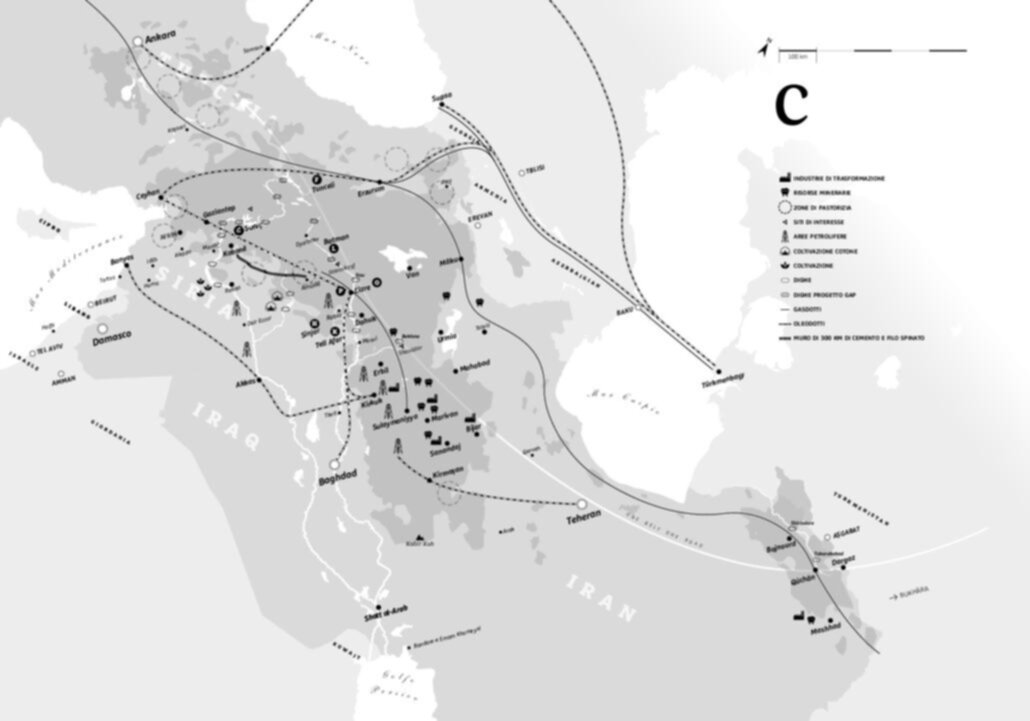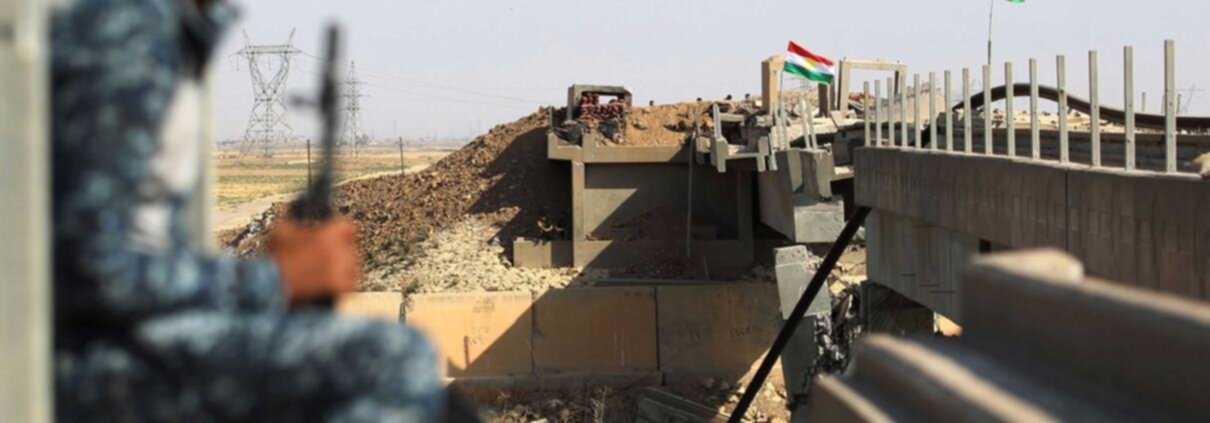Oil exploitation in Kurdistan
The KRG oil policies eventually became curse for the people of the Kurdistan Region as on one hand it created a political elite that became billionaires and held the power, on the other hand, the political elite cemented their relations with the regional powers and families so as to protect them in the future when they face domestic resistance. Meanwhile, the KRG oil policies, or more speicifically, the KDP oil policies as the KDP has been the architect of the oil and gas policies, wasn’t only a curse for the people of the Kurdistan Region of Iraq, it was even a curse for the Turkish people, and particularly the Kurds in Turkey, as one of the main reasons President Erdogan strengthened his hold on power and made the Justice and Development Party (AKP) able to maintain the reign was the easy cash Erdogan, his family and the AKP received from the KRG lucrative oil deals.
Since the KDP and AKP relations gained momentum through oil deals, especially after 2011 deals and then 2013 50-yrs oil & gas deal, the KDP, its media & the KRG oil have altogether served Erdogan’s agenda and policies.
Erdogan and AKP easily exploited the KDP and Barzani’s vulnerable domestic popularity, regional and Iraqi opposition [to the KDP and Barzani policies] and the KDP and Barzani’s rivalry with the PUK, the opposition parties and in particular with the PKK, and eventually with the Rojava. The KDP would not have been able to protect its grip on power if Erdogan had not supported as now approximately 20 Turkish military bases are inside the Kurdistan Region.

As the KRG has a landlocked geography, and Iran and Iraq have been against the KRG’s independent oil exports, the KDP/KRG had no other routes to export its oil to the international market. Erdogan, took this opportunity to make huge profit from the KRG’s geographic and political vulnerability. One of the reasons behind that Erdogan appointed his son-in law Berat Albayrak, Erdoğan’s daughter, Esra Albayrak, husband, as the Turkish Energy Minister. Albayrak’s companies have managed to export the KRG oil and buy the KRG oil from a much lesser price as compared to oil prices in the international market. Meanwhile, Barzani’s family also benefited from the oil exports through Turkey as the KDP’s Prime Minister Nechirvan Barzani has been the architect of the deals and the KDP and the Barzani family have treated the oil as their own property. These deals made the KDP and AKP closer to an extent both parties have been firmly against the achievements of the Rojava in the northern Syria. The KDP soon closed all the Fethulla Gulen schools in Erbil after an order from Erdogan’s government back in 2015 and a Kurdish businessman close to the KDP bought the ownership. And when the Turkish Army entered the Kurdish Region to attack the PKK by 30 kilometres, PM Barzani said: “Why did Turkey violate the border? What is the reason? There should be a reason. There is a reason why this is happening. That reason must first be resolved. So long as this reason is not resolved, you cannot talk about the fallout.” The Wikileaks files revealed that Masoud Barzani considered the PKK as enemy when he met Erdogan as saying that “the PKK is the KDP’s enemy as well, not just the Turks.”
For Erdogan and AKP, the KRG and the KDP have been useful economically to garner billions of dollars through lucrative oil deals and business in the KRG, and politically to check the PKK in the Qandil Mountains, KRI and somehow Rojava. Likewise, the KDP has received military support from Turkey, found a route to bypass Iraq to export oil and generate money from it and finally to weaken the PKK as the PKK is the main KDP rival politically, ideologically and militarily, as well as in terms of the geopolitics of the KDP as the PKK’s stronghold in the two parts of Kurdistan Turkey and Syria border with the KDP-controlled area in Iraq.
The Turkish strong presence in the KRG has pushed the PUK into the Iranian axes to an extent that the PUK cannot make any strategic decisions without returning to Iran.
Cf. the Italian edition in Curdi, by Antonella De Biasi, Giovanni Caputo, Kamal Chomani e Nicola Pedde, Torino, Rosenberg & Sellier, 2019



